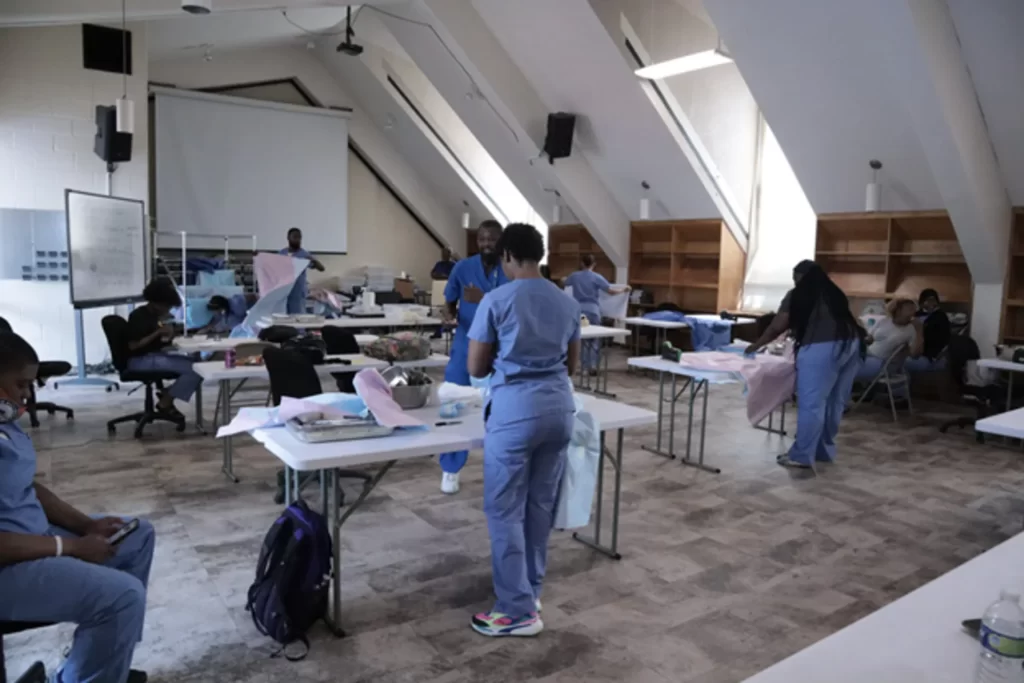The demand for Sterile Processing Technicians, also known as Central Service Technicians, is growing due to the increasing number of surgical and medical procedures. These technicians are essential to the healthcare sector because they sterilize, distribute, and decontaminate the medical tools and supplies used in surgeries and other medical operations. We’ll give a general summary of the job outlook and pay for sterile processing technicians in this article.
The demand for Sterile Processing Technicians will grow in the coming years due to the rising number of surgical and medical procedures being performed. In addition, the aging population has been increasing rapidly. This has led to an increased demand in medical facilities, which in turn is increasing the demand for central processing technicians. This is because an aging population will require more medical treatments, necessitating a more significant need for sterile medical supplies and equipment.

The healthcare sector is expanding. The number of hospitals and surgical centers is higher than a few years ago. This is also increasing the need for technicians who handle sterile processing. Additionally, there is a rise in the use of noninvasive surgical methods, which necessitates using specific tools and equipment that must be sanitized. This is also increasing the need for technicians who handle sterile processing.
The salary for Sterile Technicians varies depending on several factors, including experience, location, and education. On average, central processing technicians make about $43,000 annually. However, it can be around $30,000 to $60,000 or more, based on the above facts.
Sterile Processing Technicians with experience and advanced education, such as a certification in Central Service Technology, tend to earn higher salaries. In addition, Sterile Processing Technicians who work in hospitals and medical centers in urban and suburban areas tend to make more than those who work in rural areas.
Most Sterile Processing Technicians have a high school diploma or equivalent. However, many employers prefer to hire Sterile Processing Technicians who have finished a formal training program or have a certification in Central Service Technology. Sterilization technician training programs and certificates provide Sterile Processing Technicians with the knowledge & skills they need to perform their jobs effectively and efficiently.
In addition, Sterile Processing Technicians who have completed a formal training program or have a certification in Central Service Technology are more likely to be hired and earn higher salaries. Some states require Sterile Processing Technicians to be licensed, which usually involves passing an exam and meeting other requirements. PTTI is one the leading institutes that offer sterilization technician training.
Read more: